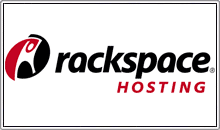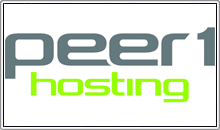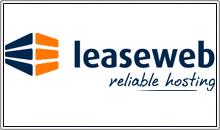Top 8 Best Web Hosting Companies of 2019
Here are the top 8 Best Web Hosting Companies of 2019 based on the results of our annual publisher survey. We present these results in a convenient and concise format that highlights respondent's most frequent comments about each service. Our aim is to create a simple starting point that will help guide your future web hosting decisions.
 AWS Cloud Front
AWS Cloud Front
Pros: Customer's loved AWS content delivery speed, pricing, and the integrated suite of website hosting products. Cons: The unique AWS architecture leaves limited flexibility and control over your content delivery. Verdict: The fastest and rated overall best in our survey but experienced webmasters will have a steep learning curve while trying to become familiar with Amazon's proprietary architecture.
 Host Gator
Host Gator
Pros: Host Gator is a great choice for small business websites and personal hosting because of their overall ease of use and user-friendly web management tools. Cons: Though they do have some prominent clients their service is not really geared toward large scale web publishers. Verdict: If you need to get your website launched quickly or your looking for a painless migration Host Gator is your best option.
 Rackspace
Rackspace
Pros: Rackspace is now and has always had the best customer support in the website hosting business. They are truly dedicated to solving their customers hosting issues and developing unique instances for custom deployments. Cons: Compared to the competition Rackspace is a bit pricey and their cloud service does not scale as well as say Amazon's. Verdict: The best choice for those looking for managed Dedicated Hosting.
 Peer1 Hosting
Peer1 Hosting
Pros: Peer1 was viewed as the most flexible web hosting company in our survey, with a fully integrated suite of content delivery products and a tech team that will help you build and maintain your custom hosting environment. Cons: Not a good option for small businesses as Peer1 is better geared toward handling larger websites. Verdict: Best for large scale websites that require flexibility and great customer support.
 Softlayer
Softlayer
Pros: Softlayer has fantastic backend technology and had the best uptime and security of any of the other hosts in our survey. Cons: The major negative of working with Softlayer is price. In fact, every respondent familiar with their service mentioned their high service costs as a major drawback. Verdict: Very good for large scale operations that can afford best of breed technology and have the in-house tech no how to manage it.
 Blue Host
Blue Host
Pros: Blue Host is considered to be one of the best options for small publishers as they offer easy setup, excellent customer support, and low and easy to understand pricing. Cons: Just like with Hostgator, Bluehosts is not really setup to handle larger scale publishing operations, so it might not be the best choice if you're expecting huge growth. Verdict: One of the best web hosting companies for small business without question.
 LeaseWeb
LeaseWeb
Pros: If you need a fully customizable web hosting environment, no one is better at helping you build it then Leaseweb, famous for hosting Wikimedia's European operation. Cons: They have often been criticized for their confusing billing practices and survey respondents felt they might not be a good fit for smaller businesses. Verdict: Great hosts for experienced operations wanting to build and manage a custom environment.
 GoDaddy
GoDaddy
Pros: Many might be surprised to see Godaddy on this list, but they are still considered an excellent choice for smaller publishers. Their price, easy-of-use, and wide range of hosting products are the reason they enter our 2019 list. Cons: GoDaddy is exclusively focused on helping small business owners and therefore offers very few tools for larger enterprise customers. Verdict: Great place for smaller companies to get started.
Related eBizMBA Guides
![]()






